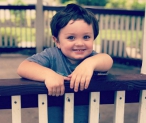Therapies for SHH-subtype Medulloblastoma
Background
Brain tumors are now the leading cause of cancer death in children. One of the most common brain tumors in children is called medulloblastoma. Many mutations (changes in the DNA) that cause medulloblastoma have been identified, and a new type of specific, targeted therapy looks very promising for attacking tumors with particular mutations. However, some tumors with these mutations do not respond to the new specific drugs.
Project Goal
This proposal aims to identify reasons why the drugs do not work, and to develop alternative therapies. There are two parts to our studies. The first part will discover reasons that tumors do not respond to targeted therapy. The second part will work to find alternative treatments that can still work in these cases. Both parts will rely on new cancer cell models that we developed, and will build on large screens that we carried out with our new models. Our preliminary studies have already discovered some reasons why targeted drugs do not work. In addition, we have found good candidate drugs that appear to be effective in tumors that cannot be treated with the known, specific drugs. Thus, our studies will lead to new treatments for children with deadly brain tumors.

